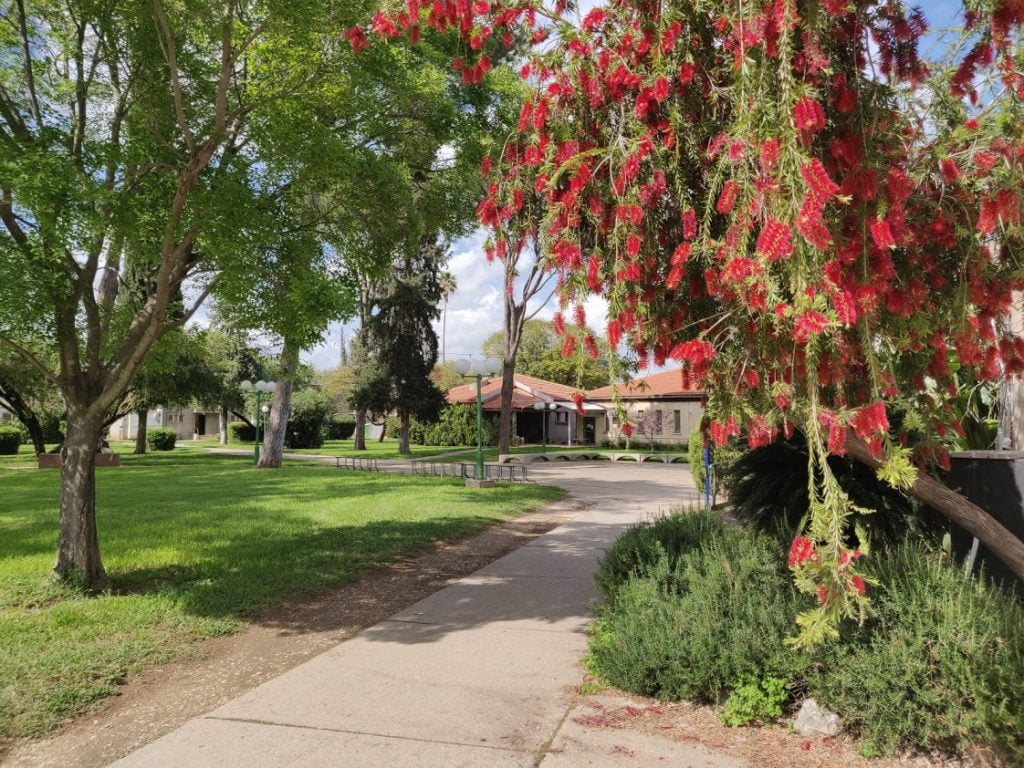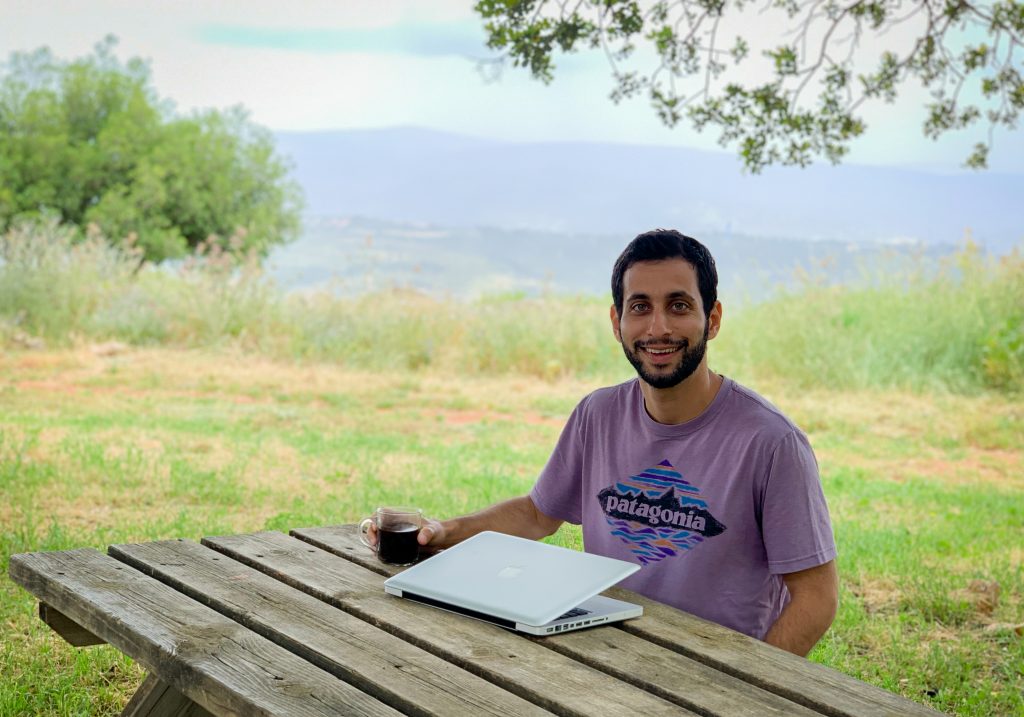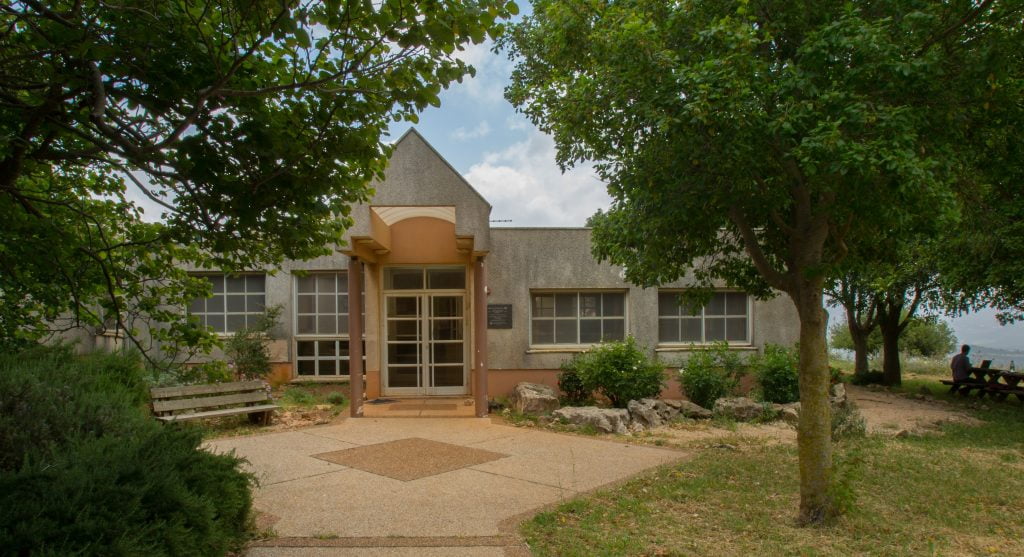Coworking spaces are the new normal with some 2.2 million people sharing office spaces worldwide. But many locations, especially in cities, are at their limits in terms of capacity, according to a 2019 Global Coworking Survey.
These collective communities were traditionally based on agriculture and although many of them have privatized and branched out to include industrial and high-tech enterprises, they still maintain a community atmosphere not found elsewhere.
Enter the kibbutz. Or more precisely, Gather – a new entrepreneurial project that wants to attract remote workers to Israel’s kibbutz communities.
SEE ALSO: Won’t You Be My Neighbor: Israel’s Venn Is Creating A ‘New Way Of Neighboring’ In Big Cities
“The world has changed but today there’s a trend to be part of a community, to belong and to find meaning. The idea behind the kibbutz is all the more relevant again,” Omer Har-Shai, co-founder of Gather, tells NoCamels.

Har-Shai came up with the idea to tap into the potential of the kibbutz – with its onsite accommodation, mess hall, lush surroundings, community atmosphere, and WiFi – and create a connection with today’s digital generation.
Gather has put out a call for professionals from across the globe to come and stay, work remotely, and experience kibbutz life for a one-month period.
“Over 100 people – graphic designers, writers, freelancers, programmers, designers, bloggers, entrepreneurs and even full-time employees – have written to us so far,” says Har-Shai. “They are from all over the world: Canada, the US, Brazil, Argentina, Mexico, different European countries.”
Har-Shai says he hopes Gather will revive the legendary kibbutz experience of the 1970s with a few adaptations for the digital millennial generation. Indeed, while kibbutz communities once attracted tens of thousands of volunteers from abroad, today, a trickle of just 100 or so 20-somethings still come to volunteer and experience the uniquely Israeli communal living style.
Foreign volunteers to kibbutz communities still come for an agriculture experience but Gather hopes to attract new participants toting laptops and drones instead of shovels and hoes.

“The kibbutz experience is still a brand name,” says Har-Shai. “Kibbutzim have gone through economic and social transformations during the past few decades, but the unique atmosphere, scenic surroundings, and communal facilities still exist today. So, there’s really no need to reinvent the wheel, just make the most out of these wonderful communities that already exist.”
There are just over 270 kibbutzim peppered around Israel. In December, Gather will launch its first cohort of up to 25 international professionals in a month-long program on Kibbutz Kfar Blum, in the Upper Galilee’s Hula Valley. A month later, a second group of some 25 people will move into guesthouse accommodations at Kibbutz Tuval, in the Galilee near Karmiel.
“People want to travel, see new cultures, but they don’t necessarily want to quit their jobs and leave everything behind. Today, it is very easy to keep your job and see other places. There are digital nomads, freelancers, and remote workers who have the flexibility to work from anywhere. Even people who don’t usually work remotely can ask for a month to try working from another place,” Har-Shai tells NoCamels.
Gather’s project is geared to the 25-35 age group. But Har-Shai says interest has also come from GAP year college-age students and people in their 50s.
Sign up for our free weekly newsletter
Subscribe
“It’s not about age or being from a specific country. We’re looking for people who are open-minded and curious, people who are looking for this kind of experience,” the 30-year old Tel Aviv-based entrepreneur says.
While foreigners used to volunteer in return for accommodation and board, Gather’s business model includes a $2,000-$2,500 fee that covers accommodation and shared office space; daily lunch in the kibbutz mess hall; access to kibbutz facilities including sports amenities and laundry services; meetups, lectures and weekend excursions.
There is an option for volunteer opportunities, but it is not the main goal of Gather’s program.
Har-Shai reiterates that participants in Gather’s kibbutz experience aren’t on vacation. “They can sublet their apartments and come live in this community for a month. I think people will be more productive on the kibbutz. There is no traffic, no errands, you live on-site and walk three minutes to the office.”

Indeed, studies out of North America and Europe show that remote work improves productivity. Moreover, Remote.co, a resource for companies, reports that the number of companies with a remote workforce is growing all the time. In 2019, according to Remote.co, 66 percent of companies allow remote work and 16 percent are fully remote.
Har-Shai, himself, is office-less.
He usually works out of a café in Tel Aviv but has worked in other communities around Israel as well as abroad. It was after working in Nitzana, a remote desert community in southern Israel adjacent to the Egyptian border that he decided to create a company that would help others work remotely and enjoy a truly Israeli experience at the same time.
“I realized I was far more productive doing physical work in the morning at my friend’s Khan [desret inn] and then coming back to my laptop in the afternoon,” he says.
SEE ALSO: The Israeli Dream: Hospitality Startup Selina Redefines Work And Play For Digital Nomads
He set out to find a community – or, communities – that could accommodate the remote workers’ needs. It took him two years to scale the project and come up with the idea of a revived kibbutz experience for foreign professionals.
So, what kind of experience does he want participants to take home with them?
“We’re a private startup with no political agenda. I think that when people are living here for a month they will see the real Israel. A diverse country, with different people; a beautiful country. It’s an interesting country,” he says. “People are just living their lives. There are ordinary people everywhere.”
Viva Sarah Press is a journalist and speaker. She writes and talks about the creativity and innovation taking place in Israel and beyond. www.vivaspress.com
Related posts

Rehabilitation Nation: Israeli Innovation On Road To Healing

Israeli High-Tech Sector 'Still Good' Despite Year Of War





Facebook comments